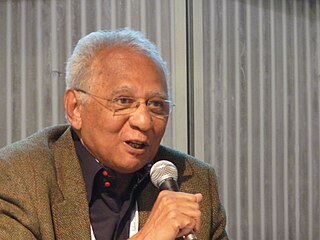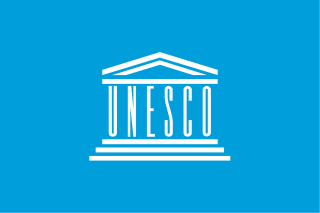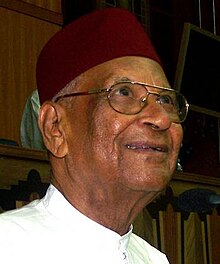
Mário Alberto Nobre Lopes Soares was a Portuguese politician, who served as prime minister of Portugal from 1976 to 1978 and from 1983 to 1985, and subsequently as the 17th president of Portugal from 1986 to 1996. He was the first secretary-general of the Socialist Party, from its foundation in 1973 to 1986. A major political figure in Portugal, he is considered the father of Portuguese democracy.

The National University of Lesotho, the main and oldest university in Lesotho, is located in Roma, 34 km (21 mi) southeast of Maseru, the capital of Lesotho. The Roma valley is broad and is surrounded by a barrier of rugged mountains which provides magnificent scenery. The university enjoys a temperate climate with four distinct seasons. The governing body of the university is the council and academic policy is in the hands of Senate, both Council and Senate being established by the Act.

António Manuel de Oliveira Guterres is a Portuguese politician and diplomat. Since 2017, he has served as secretary-general of the United Nations, the ninth person to hold this title. A member of the Portuguese Socialist Party, Guterres served as prime minister of Portugal from 1995 to 2002.
The New World Information and Communication Order is a term coined in a debate over media representations of the developing world in UNESCO in the late 1970s early 1980s. The NWICO movement was part of a broader effort to formally tackle global economic inequality that was viewed as a legacy of imperialism upon the global south.

Amadou Hampâté Bâ was a Malian writer, historian and ethnologist. He was an influential figure in twentieth-century African literature and cultural heritage. He was a champion of Africa's oral tradition and traditional knowledge and is remembered for the saying: "whenever an old man dies, it is as though a library were burning down".
Abdulqawi Ahmed Yusuf is a Somali lawyer and judge serving on the International Court of Justice since 2009. He served as the court's president from 2018 to 2021.
Djibril Tamsir Niane was a Guinean historian, playwright, and short story writer.
Many Voices One World, also known as the MacBride report, was written in 1980 by the United Nations Educational Scientific and Cultural Organization (UNESCO), which reports to its International Commission for the Study of Communication Problems. The MacBride report was named after Irish Nobel laureate and peace and human rights activist, Seán MacBride, and was tasked with analysing communication problems in modern societies, particularly relating to mass media and news, considering the emergence of new technologies, and suggesting a form of communication order to reduce obstacles to further peace and human development.
Amadou is the Francophonic-orthography variant of the Islamic name Ahmad, commonly used in West Africa. Amadou is interchangeable with the forms Ahmadu or Amadu in non-Francophone African countries.

Henri Lopes was a Congolese writer, diplomat, and politician. He was Prime Minister of Congo-Brazzaville from 1973 to 1975, and became Congo-Brazzaville's Ambassador to France in 1998.

The United Nations Educational, Scientific and Cultural Organization (UNESCO) is a specialized agency of the United Nations (UN) with the aim of promoting world peace and security through international cooperation in education, arts, sciences and culture. It has 194 member states and 12 associate members, as well as partners in the non-governmental, intergovernmental and private sector. Headquartered in Paris, France, UNESCO has 53 regional field offices and 199 national commissions.
Joseph Roger de Benoist was a French missionary, journalist, and historian. His main areas of study were French West Africa and the history of the Catholic Church in sub-Saharan Africa, particularly in Senegal, where he lived for several decades.
Amadou Mahtar Ba is the Co-Founder and Executive Chairman of AllAfrica Global Media Inc, - owner and operator of AllAfrica.com - an international multi-media content service provider, systems technology developer and the largest distributor of African news and information worldwide. From 2009 until May 2014, he was Chief Executive of the African Media Initiative, a pan-African effort he established to provide the continent's media owners and practitioners with tools they need to play a stronger leadership role in their communities, countries and the region.

Hiroshima: In Memoriam and Today is a collection of stories of survivors of the atomic bombing of Hiroshima on August 6, 1945. It was edited by Hitoshi Takayama. It also contains a number of opinions and messages from world leaders including Pope John Paul II, Australian Prime Ministers Gough Whitlam and Malcolm Fraser, South African President F.W. de Klerk and UN Secretary General Kurt Waldheim. It was first published in 1969 and 1971 as Hiroshima: In Memoriam and then republished in 1973, 1975, 1979, 1982 and 2000 under the current title.

Suzanne Comhaire-Sylvain was the first woman Haitian anthropologist. Suzanne Comhaire-Sylvain was a student of Bronisław Malinowski who worked in 1949 with Alfred Métraux, and participated in a UNESCO project in Haiti. She married Jean Comhaire, a Belgian who headed the Anthropology Department of University of Nsukka. Subsequently, she worked in Africa.

The Restitution of African Cultural Heritage. Toward a New Relational Ethics is a report written by Senegalese academic and writer Felwine Sarr and French art historian Bénédicte Savoy, first published online in November 2018 in a French original version and an authorised English translation.

Jean Broward Shevlin Gerard was the American permanent representative to United Nations Educational, Scientific and Cultural Organisation (UNESCO) and is credited with playing a key role in the US pulling out of the agency under the Ronald Reagan administration. From 1985 to 1989, she served as Ambassador to Luxembourg.
The PanAfrican Archaeological Association (PAA) is a pan-African professional organisation for archaeologists, geologists and palaeoanthropologists.
Blaise Adolphe Antoine Marie Senghor was a Senegalese film director, screen writer and UNESCO Permanent Delegate and vice-chairman for Senegal.











